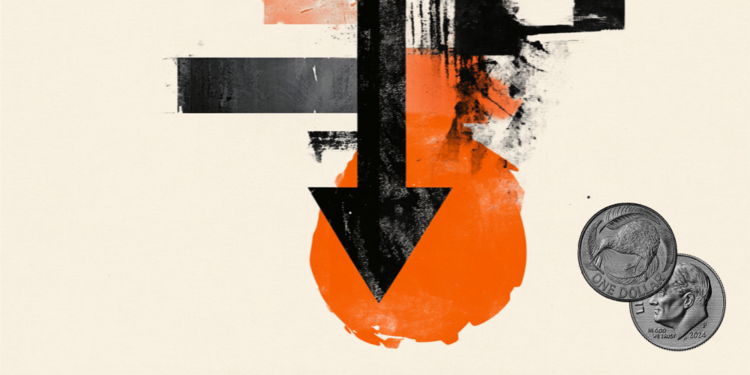On his final trip to the Central African Republic (CAR) last month, former Wagner Group boss Yevgeny Prigozhin visited “la Maison Russe,” or Russian House, a cultural center near the Russian embassy in the capital, where he posed for selfies with his lieutenants and locals.
The institute, and its various activities, are clear examples of how the mercenary group has become a substitute for the Russian state in the country and a symbol of the challenges that President Vladimir Putin faces as he tries to regain control.
Since Prigozhin’s coup attempt in June and his subsequent death in a plane crash near Moscow just two months later, Russia has been engaged in a high-stakes struggle to centralize its empire on the African continent, which includes thousands of fighters, a wide range of holding companies and multiple soft power initiatives like this.
See also: Russia denies involvement in the crash of the plane carrying the Wagner Group leader
As the Kremlin tries to engage Wagner’s extensive business network, what comes next for the group remains unclear. But signs of what the future may hold in RCA, one of the first client states of the organization and its laboratory on the continent, are beginning to emerge in Bangui.

Russia appears to be consolidating the Wagner Group’s operations in the region while continuing to exert its influence. The message Moscow wants to convey appears to be: business continues as usual.
Russia’s dominance is visible everywhere. In roadside bars, residents drink Africa Ti L’Or beer and Wa-Na-Wa vodka manufactured by a company linked to Wagner. Meanwhile, fighter jets donated by Russia whistle on missions overhead.
In the cultural center, a Russian tricolor flag flies. Outside, a carousel covered by an onion-shaped dome spins in the courtyard.
“Maison Russe is the center of all of Wagner’s activities in the Central African Republic,” Nathalia Dukhan, a senior investigator at The Sentry, a U.S. nonprofit that has monitored Wagner across the country, told CNN .
According to The Sentry, the center houses a wide range of operations linked to Wagner’s business ventures – the group uses it to sell its gold and diamonds and entertain VIPs.
It organizes events aimed at “spreading Russian culture and at the same time promoting a pro-Moscow perception of international relations,” Dukhan said.
Wagner Group mercenaries have been operating in CAR since at least 2018, protecting President Faustin-Archange Touadera and training army recruits. Wagner troops have fought rebels in the country’s more than decade-long civil conflict, while also expanding Russia’s reach in the mineral-rich nation.
Wagner has secured a series of generous mining concessions in the country to prospect for diamonds and gold, and is heavily involved in the timber industry.

All Eyes on Wagner, an initiative that tracks the group, said the Russian House is incorporated as a company in Bangui but has no links to the Rossotrudnichestvo agency, which is the Russian state agency that coordinates cultural institutes around the world.
“Maison Russe is a prime example of how the Wagner Group has been a stand-in for the Russian state,” All Eyes on Wagner told CNN . He added that it serves both Wagner’s and Russia’s interests: “Promoting Wagner beers through exclusive events, screening Wagner films, hosting Prigozhin and inviting Russian delegations from the Ministry of Defense to give lectures on Russia-CAR military cooperation.” .
The center has long been led by Dmitry Syty, a former Prigozhin deputy who played “a leading role” in the CAR for Wagner, according to the European Council.
But Syty, who was sanctioned by the European Union and the United States “for serious human rights violations” and survived an assassination attempt in December 2022, may have been replaced.
Local media recently reported that a new director has taken over the Russian House, referring to her as Nafisa. She was depicted in Prigozhin’s photographs on his last visit to the RCA, but there is no evidence that she had any connection with Wagner before April.
Access to the Russian House is extremely restricted. No Western journalist had access and requests from the CNN to film in the center were repeatedly rejected by the supposed new director.
When a team from CNN visited the location using a hidden camera, she introduced herself as Nafisa Kiryanova.

Based on social media accounts and other linked profiles, the CNN discovered that she also has another name: Anfisa Alexandrovna Kiryanova.
A YouTube channel linked to Kiryanova reveals that nine months ago she was sharing cosmetics review videos. In a CV shared online, she claims to have worked as a translator and attended Sorbonne University in Paris and Moscow State Linguistic University.
Dressed in local clothes and silver high heels, she gave the CNN a brief tour of the institute. In three tents outside the center, Russian classes were held, while Russian films were shown in a cinema room.
A masked man, who appeared to be a Wagner Group mercenary, walked past the tents to a parking lot behind. Kiryanova did not confirm who he was nor did he show the CNN the restricted area where he was heading.
When the CNN pressed Kiryanova about her appearance in the background of photos taken of Prigozhin at the center, she was evasive, asking: “Oh my God, can you show me that?” After seeing the photos, she begrudgingly admitted, “Okay, yes, that’s right.”
Speaking about Prigozhin’s visit and Wagner’s future in CAR, Kiryanova said his death meant nothing for Russia’s mission in the country.
“Does anything change if, I don’t know, the president of your country dies? Does this mean your country ceases to exist? The mission continues to exist, the Russian cultural mission continues to exist,” she said.
Asked who oversaw the center now, Kiryanova said Syty was “responsible for the head of the entire mission and heads some other directions.”
Syty and President Touadera’s Wagner security advisor, Vitali Perfilev, who is also sanctioned by the US and European Union, are among Wagner’s old guard still on the ground in CAR as of late last week.
A diplomat who spoke to CNN on condition of anonymity said the two men returned to Moscow and then returned, suggesting they had signed new contracts with the Russian Defense Ministry.
Both have retreated into the shadows in recent months and declined the company’s repeated interview requests. CNN .
The diplomat said Wagner left a lasting mark on CAR with only about 1,000 mercenaries on the ground. Now, Russia is embarking on a reorganization in an attempt to reduce Wagner’s operating costs in CAR, the official said.
This effort has two aspects: forcing fighters to sign new contracts and removing them to concentrate control in the main population centers.
In July and August, Ilyushin IL-76 transport planes rotated weekly to take fighter jets back to Moscow to sign contracts, the official said, adding that around 150 did not return.
There are obvious signs of a reconcentration of troops across the capital.
Wagner Group mercenaries drive around Bangui in unmarked pickup trucks painted green or sand.
They are on the streets and shopping in supermarkets, dressed in hoodies to buy cookies, bananas and bottles of Coca-Cola. Wagner protocol dictates that they must always cover their faces – even in situations like looking for shoes in a store.
Despite the failed Wagner Group mutiny and the subsequent death of Prigozhin, thousands of kilometers to the north, little has changed in the CAR’s relationship with Russia, according to Fidèle Gouandjika, a senior advisor to President Touadera.
A CNN met with Gouandjika at his mansion in the capital. Tall and gray-haired, he wore a T-shirt emblazoned with the message “Je suis Wagner” – “I am Wagner” in French – claiming it was given to him by Prigozhin himself.
“He was my friend, he was my best friend before all the people of Central Africa,” he said of the late mercenary chief.

“The Russians gave us peace,” he said, adding, “we are very happy that Mr. Yevgeny Prigozhin, in a short time, a year, expelled the rebels, and our country is 100% occupied by our army.”
Gouandjika stated that Putin recently spoke to Touadera and assured him that: “’Everything will be like yesterday. It will be better tomorrow and the day after tomorrow. So we have no regrets.’”
(Gianluca Mezzofiore, from CNN contributed to this text)
Source: CNN Brasil
Bruce Belcher is a seasoned author with over 5 years of experience in world news. He writes for online news websites and provides in-depth analysis on the world stock market. Bruce is known for his insightful perspectives and commitment to keeping the public informed.







